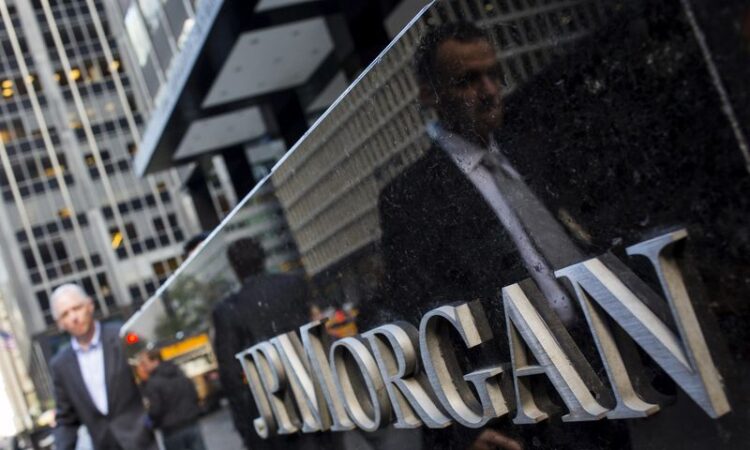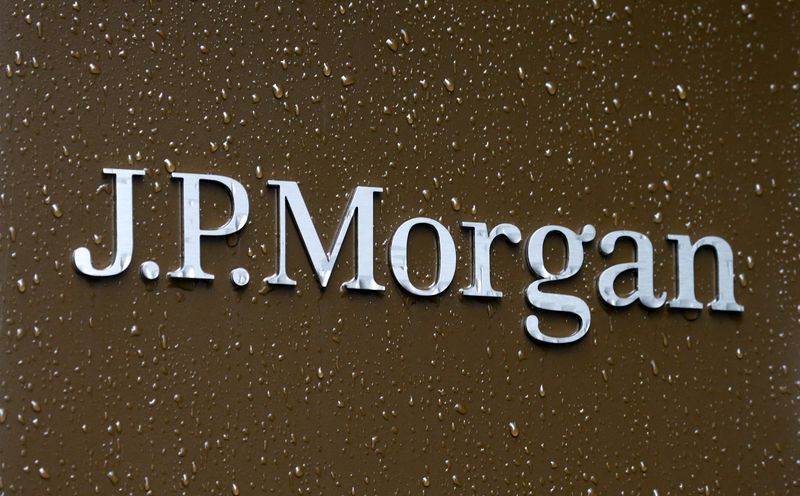

© Reuters. FILE PHOTO: The logo of J.P. Morgan is seen in Zurich, Switzerland July 8, 2021. REUTERS/Arnd Wiegmann/File Photo
By Karin Strohecker
LONDON (Reuters) – Wall Street banks are raising their outlook for emerging markets’ hard-currency bonds as a slowdown in U.S. rate hikes could provide some breathing space for the embattled asset class.
Government bonds across developing economies have suffered negative returns of 20% this year against a backdrop of soaring inflation and aggressive rate hikes in what is widely expected to be one of the worst years on records for emerging markets.
JPMorgan (NYSE:) raised its outlook for emerging market hard-currency debt on Monday to “marketweight” from “underweight”, saying the latest U.S. inflation data cemented a shift to the next phase in the cycle. The focus is now on growth and U.S. recession risk, it said, and away from higher inflation leading to a higher terminal Fed Funds rate as the main bearish driver of EM markets.
In its 2023 outlook Morgan Stanley (NYSE:) predicted emerging market hard-currency bonds could return more than 14% next year.
“We move into the final weeks of 2022 with an anticipation of better months ahead for EM fixed income investors,” Morgan Stanley’s James Lord wrote in a note to clients.
“The key call behind the positive total returns is the expectation that inflation globally falls in 2023.”
JPMorgan estimated recently that money managers have dumped $86 billion worth of EM bonds, quadruple the amount they sold during the ‘taper tantrum’ year of 2015.
Global financial markets on Friday cheered data showing a smaller-than-expected rise in U.S. consumer prices in October with underlying inflation appearing to have peaked.
That potentially allows the Fed to dial back its hefty interest rate hikes and Citi has become more constructive on both emerging market fixed income but also developing currencies.
“The Fed pivot narrative is making a comeback, as peak U.S. Core CPI seems to be finally in,” Citi Research’s head of emerging market strategy Dirk Willer said in the bank’s weekly strategy note. “Recession fears may eventually sour the better move, but for now markets trade the more dovish rates outlook.”
However, it might not be quite time for investors to dive into emerging market sovereign credit.
JPMorgan’s emerging market strategist Jonny Goulden said Federal Reserve hiking cycles were usually followed by a “wait” period before the onset of a U.S. recession, or possibly even an emerging markets financial crisis.
“This will be the largest Fed hiking cycle for decades, with a large tightening in broad financial conditions,” he said.
“But we have highlighted that the ‘wait’ period when the Fed has delivered its last hikes is usually accompanied by some relief (in emerging markets).”
GRAPHIC: Submerging markets – https://graphics.reuters.com/EMERGING-MARKETS/gkvlwgmzqpb/chart.png



